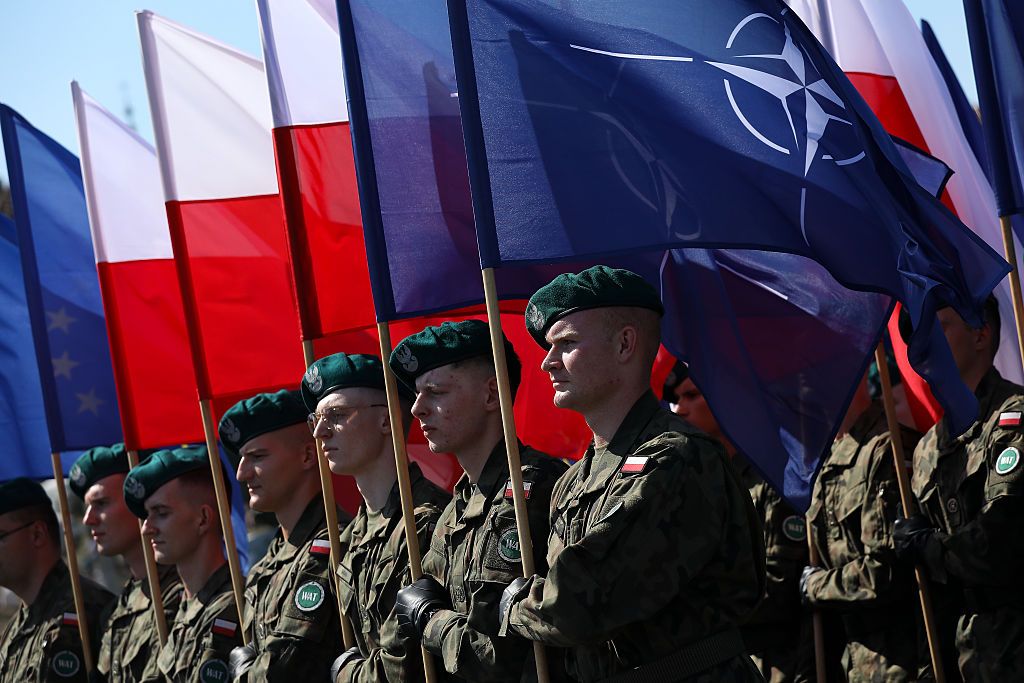Polish president vetoes Ukraine aid law, threatens Starlink services for Ukraine

LATEST: Polish president's veto won't threaten Ukraine's Starlink access, Nawrocki's office claims.
Editor's note: This story was updated to include another law signed by President Karol Nawrocki the same day and a comment from a diplomatic source.
Polish President Karol Nawrocki on Aug. 25 vetoed a bill that would have extended financial support for Ukrainians fleeing the war, a decision that officials warn will also cut funding for Ukraine's Starlink internet service starting Oct. 1.
Poland has been supporting Ukraine's internet connection since the start of Russia's full-scale invasion by financing Starlink systems, which are a lifeline for soldiers fighting on the front line.
"Presidential vetoes are cutting blindly! Karol Nawrocki turns off the Internet in Ukraine with his decision, because de facto it means his decision on the law on assistance to Ukrainian citizens," Polish Deputy Prime Minister Krzysztof Gawkowski wrote on X. "This is the end of the Starlink Internet, which Poland provides to Ukraine, which is waging war. This is also the end of support for storing Ukrainian administration data in a safe place."
"I can't imagine a better gift for (Russia's President Vladimir) Putin's troops than cutting off Ukraine from the Internet," he added, accusing Nawrocki of "helping Russia" by blocking support for Kyiv's communications infrastructure.
The Polish president's decision to veto the bill "means that as of Oct. 1, Warsaw will not be able to continue paying for Ukraine's Starlink subscription," a spokesperson for Poland's Digital Affairs Ministry told TVP public television on Aug. 25.
"The bill, which President Nawrocki vetoed, extended the period of assistance, meaning this funding from the Ukraine Aid Fund, until the end of March next year," ministry spokesperson Marek Gieorgica said. "Therefore, there is currently no legal basis for funding this from Oct. 1."
According to Polish outlet Onet, Nawrocki said on Aug. 25 that Poland's strategic interests have not changed, and Russia remains "the greatest threat to security."
"However, after 3.5 years, the situation in terms of financials and social and political emotions has fundamentally changed. The law that was proposed should be corrected today," Nawrocki added during a briefing at the Presidential Palace.
Ukraine relies heavily on Starlink, the satellite internet system developed by Elon Musk's SpaceX, to maintain connectivity in front-line areas and support government communications.
Ukraine's Digital Transformation Minister Mykhailo Fedorov announced on April 3 that Poland had supplied 5,000 additional Starlink terminals for critical infrastructure.
Since the start of Russia's full-scale invasion in 2022, Ukraine has received over 50,000 Starlink terminals, with Poland providing nearly 30,000 — the largest contribution by any single country, according to Fedorov.
Among other measures, Nawrocki announced the submission of his own bill that, among other measures, would extend the period required to obtain Polish citizenship from three to 10 years and introduce harsher penalties for illegal border crossing.
Nawrocki also proposed equating the "Bandera symbol" with Nazi and Communist symbols in Poland's criminal code and revising the law on the Institute of National Remembrance to reflect "crimes committed by the Ukrainian Insurgent Army."
The controversy over historical symbols has long complicated Polish-Ukrainian relations. While many in Poland associate Stepan Bandera's legacy with wartime atrocities, in Ukraine, the figure has come to symbolize resistance and national identity, especially in the fight against Russia's ongoing invasion.
"In order to eliminate Russian propaganda and set relations with Ukraine on a mutual respect, I believe we should also include in this bill an unambiguous slogan 'stop Banderism,'" the Polish president declared.
A Ukrainian diplomatic source told the Kyiv Independent that while Ukraine appreciates Poland’s past support, equating Ukrainian symbols with Nazi and Communist ones risks fueling negative sentiment in Ukrainian society.
"Any politicized decisions on allegedly equating Ukrainian symbols with Nazi and Communist ones may provoke stronger negative sentiment in Ukrainian society and will require a response from the Ukrainian side," the source said.
Nawrocki, a right-wing nationalist backed by the opposition Law and Justice party, narrowly won Poland's presidential election on June 1 with 50.89% of the vote, defeating liberal rival Warsaw Mayor Rafal Trzaskowski.
While Poland has a parliamentary system in which the president's authority is largely ceremonial, the Polish president is still able to veto legislation proposed by the parliament.













